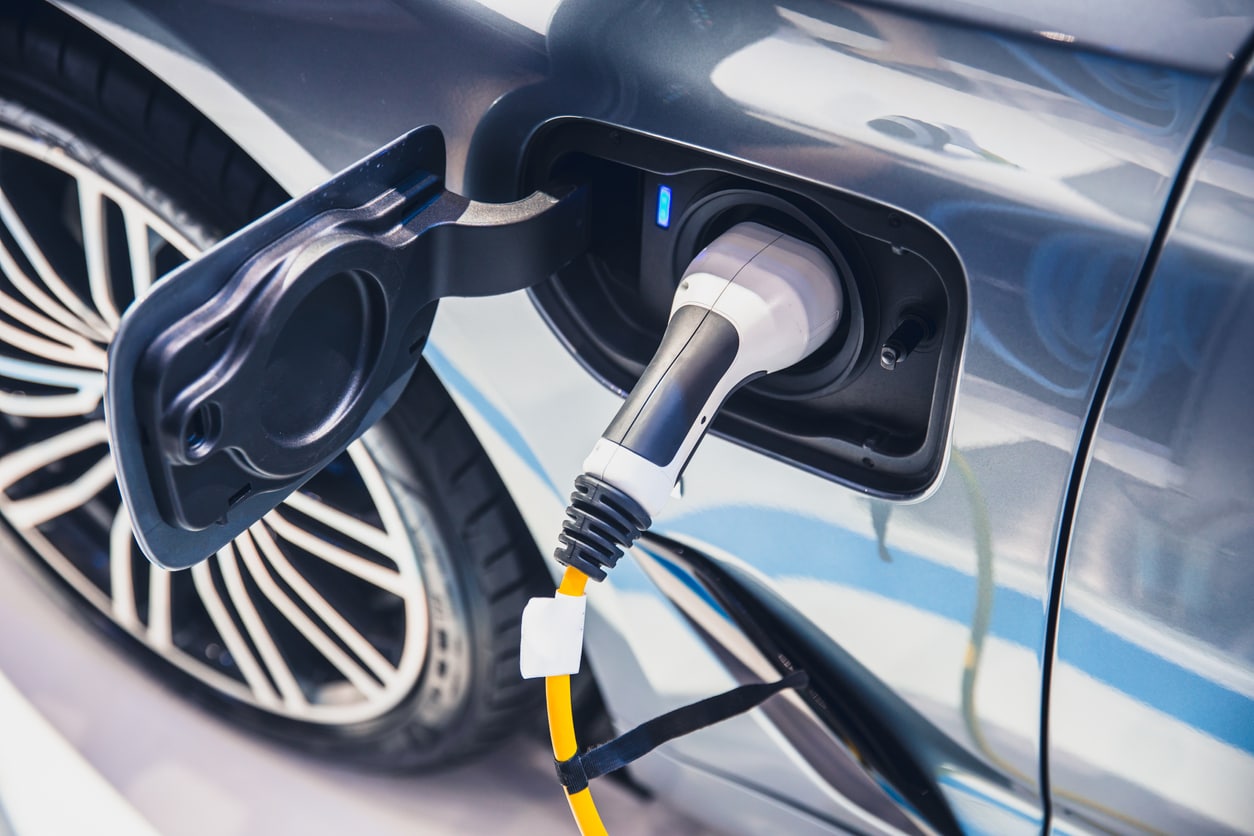Charging a lithium battery requires a charger designed specifically for lithium-ion cells. A standard charger may not provide the appropriate voltage or safety features.
Lithium batteries, known for their efficiency and high energy density, have become ubiquitous in modern electronics. They power everything from smartphones to laptops to electric vehicles.
Nevertheless, maintaining their longevity and safety requires proper charging techniques. Using a charger not engineered explicitly for lithium batteries can result in poor performance or even pose a fire hazard.
It is imperative to use a charger that matches the battery’s chemistry and specifications. Adequate chargers will ensure a full charge and preserve the battery’s life.
Manufacturers often provide the recommended chargers or indicate the necessary parameters to ensure user convenience while safeguarding against potential issues. Safety and battery integrity should always precede when selecting a charging method.

Credit: www.tiresplus.com
The Basics Of Lithium Battery Charging
Understanding how to charge lithium batteries starts with their unique chemistry. Lithium batteries need a specific charging process. This keeps them safe and lasts long. We can’t use just any charger. Let’s dive into what makes lithium batteries unique and how to charge them.
Unique Properties Of Lithium Batteries
Lithium batteries stand out. They pack more power and live longer than others. Here’s why these batteries are different:
- High energy density for more prolonged use
- Lightweight and compact
- Stable, but needs proper handling
They also require special care when charging. Overcharging or the wrong voltage can be harmful. That’s why using the correct charger is vital.
Standard Charging Practices For Lithium-ion Cells
Charging lithium-ion cells is a delicate process. Here’s how to do it safely:
- Start with the correct charger, designed for lithium.
- Use chargers that adjust to the cell’s needs.
- Never exceed the recommended voltage.
Look for chargers with built-in protection. They prevent overcharging. Chargers should also end charging when the battery is full.
Remember, a standard charger might not be safe. Always pick a charger meant for lithium batteries. Charging correctly keeps you safe and your batteries healthy.
Dangers Of Using A Non-specific Charger
Choosing the correct charger for a lithium battery is crucial. A non-specific charger may not match the technical specifications required for lithium batteries.
This mismatch can lead to significant safety concerns and battery problems. Below, we will explore some critical risks of using the wrong charger.
Risk Of Overcharging
A charger not designed for a lithium battery can pose an overcharging risk. A dedicated lithium battery charger follows a specific charging profile, including precise voltage and current guidelines.
A mismatched charger might ignore these guidelines, leading to excessive voltage delivered to the battery. This can cause the chemistry within the battery to destabilize, potentially leading to overheating, fire, or even explosion.
Potential Damage And Battery Deterioration
Non-specific chargers can shorten the lives of lithium batteries. These batteries need balanced charging. If the charger cannot ensure this, the following issues may arise:
- Inconsistent charging, leading to damaged cells
- Swelling of the battery due to gas build-up
- Reduced capacity as cells cannot store as much power
- Increased wear and tear, culminating in a shorter battery lifespan
The correct charger ensures optimal performance and longevity for lithium batteries. Using a generic charger can also void warranties.
A dedicated charger is not just a recommendation; it’s essential for safe and efficient battery use.
Comparing Chargers: Lithium Vs. Conventional
Choosing the correct charger for a battery is vital. It ensures safety and longevity. This discussion sheds light on whether you can use a conventional charger for a lithium battery.
Different batteries need different chargers. Let’s explore why this is, focusing on voltage, current, circuitry, and charging algorithms.
The Voltage And Current Requirements
Lithium batteries require precise charging. Their voltage and current needs are specific. Too high or too low can harm them. Conventional chargers often lack this precision. A mismatch can lead to poor performance or danger.
Always check the charger’s output against the battery’s needs. This table compares typical requirements:
| Battery Type | Voltage Requirement | Current Requirement |
|---|---|---|
| Lithium Battery | 3.6V – 4.2V per cell | Varies by capacity |
| Conventional Battery | 1.2V – 1.5V per cell | Lower, steady rate |
Circuitry And Charging Algorithms
Chargers are not just about power. They have intelligent circuits inside. Lithium chargers use unique algorithms. These keep batteries safe and healthy. Conventional chargers lack these algorithms.
They charge more simply. Lithium batteries need a charger that ‘talks’ to them. This conversation ensures the proper charge cycle. Here are the differences in point form:
- Lithium Charger: Smart charging with monitoring
- Conventional Charger: Direct charge without feedback
This difference is crucial. Using the wrong charger could damage the battery. Or worse, it could pose a fire risk. Always pair a lithium battery with a charger designed for it. This ensures peak performance and safety.

Credit: blog.wallbox.com
Myth-busting Misconceptions
Charging lithium batteries seems straightforward, right? Well, not quite. The internet is abuzz with advice, but let’s untangle the facts from fiction.
The Truth About Compatibility
Bold claims float around, suggesting any charger can fuel a lithium battery. That’s just not true. Lithium batteries need specific chargers that align with their intricate chemistry.
- Voltage requirements differ
- Chargers adjust for battery condition
- Standard chargers can’t match these specifications
Why Your Normal Charger Falls Short
Do you think your usual charger should do the trick? Think again. Lithium batteries demand chargers that understand their language – one of precise power and care.
| Your Charger | Needs of a Lithium Battery |
|---|---|
| Constant voltage | Variable voltage |
| Uniform charging method | Custom charging phases |
| Lacks communication | Requires real-time communication |
It was charging without a designated lithium charger, which risks battery health and safety. It’s like filling a diesel car with unleaded fuel. It just won’t work correctly.
Safe Charging Practices For Lithium Batteries
Charging lithium batteries requires caution and the right equipment. Safe charging practices ensure long battery life and prevent accidents. It is vital to know the dos and don’ts.
Opt For A Dedicated Lithium Charger
Using a charger designed for lithium batteries is crucial. These chargers control the charge rate. They avoid overcharging. A dedicated charger adapts during the charging stages. This prevents damage to the battery.
- Check the charger compatibility with your battery.
- Ensure the charger has the correct voltage and current settings.
- Look for chargers with protective features like overcharge protection.
Maintaining Battery Health
Proper charging habits maintain battery health. Avoid complete discharges. Charge your battery before it completely drains. Store batteries properly when not in use.
- Keep batteries at a moderate temperature.
- Charge batteries to about 50% for long-term storage.
- Regularly check battery health. Replace if needed.
| Good Practices | Bad Practices |
|---|---|
| Use proper charger | Use unsuitable charger |
| Monitor charging | Leave battery unattended |
| Check battery condition | Ignore battery warnings |
Technological Advancements In Charging
Charging technology leaps ahead every day, giving us safer and faster ways to power up our batteries. We’ve come far from the simple chargers of old.
Now, we explore how modern chargers and systems keep lithium batteries in top shape and what the future holds for universal charging solutions.
Smart Chargers And Battery Management Systems
Lithium batteries require a specific charge method. Traditional chargers might not fit the bill. Smart chargers do more than power a battery. They communicate with the battery, adjusting the charge rate to prevent damage.
Battery Management Systems (BMS) work with intelligent chargers. They protect against overcharging, overheating, and short-circuiting. A BMS can:
- Monitor battery health.
- Balance the charge across cells.
- Optimize battery life.
Together, intelligent chargers and BMS ensure safe charging and longer battery life.
The Future Of Universal Charging Solutions
The dream of one charger for all devices isn’t far out of reach. Efforts towards a universal charging system are growing. Innovations aim to make charging more accessible and convenient.
Imagine a world where you use one charger for phones, laptops, and even electric vehicles. Researchers focus on:
- Compatibility across devices.
- Efficiency gains.
- Environmental sustainability.
This unified approach could reduce waste, cut costs, and simplify our digital lives.
How To Charge A Lithium Ion Battery With A Regular Battery Charger
Charging a lithium-ion battery with a regular battery charger requires some precautions to ensure safety and proper charging. Here are general steps to follow:
- Check Compatibility: Ensure that your standard Lithium-ion battery chargers are compatible with them. Battery lithium-ion batteries have specific voltage and current requirements, and not all chargers may be suitable.
- Voltage and Current Settings: Set the charger to the correct voltage for your battery, which is made of lithium-ion. Most lithium-ion batteries work at around 3.7 volts per cell, so if you have a multi-cell battery, ensure that the charger voltage matches the total voltage of the battery pack. Additionally, set the charging current to an appropriate level specified by the battery manufacturer.
- Charge in a Safe Environment: Charge the battery in a well-ventilated, fire-safe area. Avoid charging the battery near flammable materials.
- Use a Quality Charger: If possible, use a quality charger designed for lithium-ion batteries. Cheap or poorly designed chargers, such as overcharge protection, may not provide safety features.
- Connect the Charger: Connect the charger’s positive (+) and negative (-) terminals to the corresponding terminals on the lithium-ion battery. Double-check the polarity to avoid damaging the battery.
- Monitor Charging: Keep an eye on the charging process. Lithium-ion batteries can be sensitive to overcharging, so it’s essential to stop charging when the battery is fully charged. Some chargers have built-in mechanisms to stop charging when the battery is full.
- Charge within Specified Limits: Ensure you are charging the battery within the voltage and current limits recommended by the battery manufacturer. Overcharging can lead to safety hazards, including fire or damage to the battery.
- Unplug After Charging: When the battery is ultimately charged, turn off the charger to avoid overcharging. Leaving a lithium-ion battery plugged into the charger for a long time can lead to damage.
- Follow Battery Guidelines: Always refer to the guidelines provided by the lithium-ion battery manufacturer. Different batteries may have unique charging requirements, so following the recommended procedures is essential.
- Safety First: If you notice any abnormalities during the charging process, such as excessive heat, smoke, or swelling of the battery, immediately stop charging and disconnect the battery. Dispose of damaged batteries properly.
Remember that lithium-ion batteries can be sensitive, and improper charging can lead to safety hazards. If you’re uncertain about charging your lithium-ion battery, consult the manufacturer’s guidelines or seek professional advice.
Frequently Asked Questions Can I Charge A Lithium Battery With A Normal Charger?
What Happens If You Charge A Lithium Battery With A Normal Charger?
Charging a lithium battery with a regular charger could harm or decrease performance. Lithium batteries require specific chargers that balance and regulate voltage and current to prevent overcharging and overheating. The use of an incompatible charger could also pose safety risks.
Do You Need A Special Battery Charger To Charge A Lithium Battery?
Lithium batteries require a special charger to accommodate their unique charging and safety requirements. Using the correct charger helps maintain battery life and performance.
What Happens If You Use The Wrong Charger For A Lithium Battery?
Using Overcharging a lithium battery with the incorrect charger can result in overheating, and potential battery damage, risking reduced lifespan or safety hazards. Always use the recommended charger.
Can You Charge A Lithium-ion Battery With A 12 Volt Charger?
You can charge a lithium-ion battery using a 12-volt charger designed explicitly for lithium-ion cells. Always ensure the charger matches the battery’s specifications for safe charging.
Conclusion
Wrapping up and matching chargers to battery types is crucial for safety and longevity. While tempting, charging lithium batteries with standard chargers poses risks. Opt for specific lithium-compatible chargers, ensuring optimal charging and preventing potential hazards. Remember to prioritize proper charging techniques for your devices’ health.

I am a Mahdi . I have four two of experience in Technology and all types of Battery’s like Solar Battery, Car Battery, Lithium Battery etc. So I work on solving these issues and give various tips on these issues.
